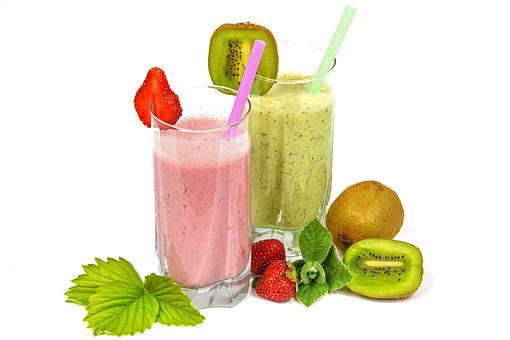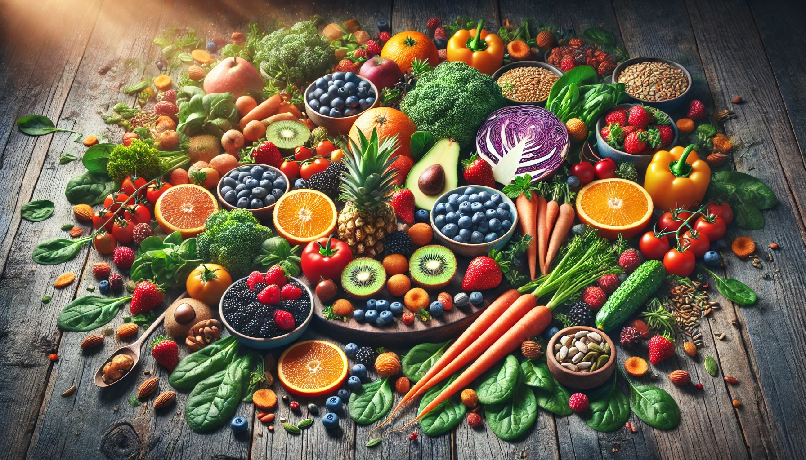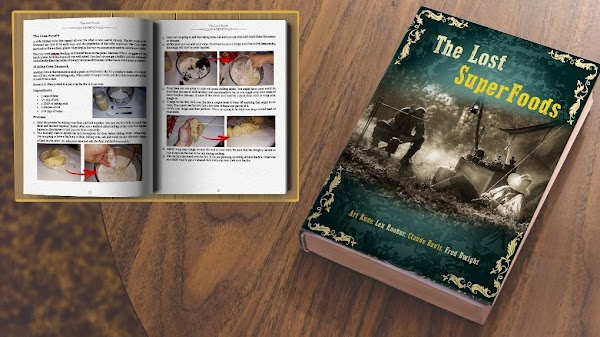Effortless Weight Loss:
Effortless Weight Loss Secrets
An effortless Weight loss can often feel like a daunting journey filled with strict diets, intense workouts, and constant cravings.
However, what if I told you there’s a way to lose weight effortlessly, without feeling deprived or exhausted?
The secret to effortless weight loss isn’t about drastic measures but adopting sustainable and enjoyable habits that naturally lead to a healthier you.
In this blog, we’ll explore these secrets, focusing on practical strategies, mindful eating, the role of smoothies, and how to make weight loss feel less like a chore and more like a lifestyle.
Understanding the Basics of Effortless Weight Loss
Before diving into the secrets of effortless weight loss, it’s essential to understand the basics.
Weight loss occurs when you burn more calories than you consume. This principle, known as the calorie deficit, is the cornerstone of any successful weight loss plan.
However, not all calories are created equal.
The quality of your calories—meaning the types of foods you eat—plays a significant role in how you feel, how much energy you have, and how your body stores fat.
Effortless weight loss is about making this calorie deficit easy to maintain without feeling hungry, tired, or deprived.
The focus is on eating nutrient-dense foods that keep you full and satisfied, allowing you to naturally eat less without the struggle.
The Power of Nutrient-Dense Foods
One of the most effective ways to achieve effortless weight loss is by prioritizing nutrient-dense foods.
Because these are foods that provide a high amount of vitamins and minerals.
As well as other essential nutrients relative to their calorie content.
Nutrient-dense foods help you feel fuller longer, reduce cravings, and provide your body with the energy it needs to function optimally.
Some examples of nutrient-dense foods include:
Leafy Greens: Spinach, kale, and other leafy greens are low in calories but high in fiber, vitamins, and minerals.
Fruits: Berries, apples, and oranges are packed with fiber and antioxidants while being naturally low in calories.
Lean Proteins: Chicken breast, turkey, tofu, and fish provide essential amino acids without excess fat.
Whole Grains: Quinoa, brown rice, and oats offer complex carbohydrates and fiber, which help stabilize blood sugar levels.
Healthy Fats: Avocados, nuts, seeds, and olive oil provide essential fatty acids that keep you full and support overall health.
By focusing on these foods, you can eat satisfying meals that help you lose weight naturally.
The Role of Smoothies in Effortless Weight Loss
Smoothies have become a popular tool in the weight loss journey, and for a good reason. When made correctly, smoothies can be a quick, delicious, and nutrient-packed meal or snack that supports weight loss. The key is to create balanced smoothies that include protein, healthy fats, and fiber.
Here’s how to build a weight-loss-friendly smoothie:
Start with a Base: Use a low-calorie liquid like water, unsweetened almond milk, or coconut water as your base.
Add Protein: Include a source of protein such as Greek yogurt, protein powder, or silken tofu. Protein helps keep you full and supports muscle maintenance.
Include Fiber: Add fruits and vegetables like berries, spinach, or a banana for natural sweetness and fiber. Fiber slows digestion, helping you stay full longer.
Healthy Fats: Throw in a handful of nuts, seeds, or a tablespoon of nut butter. Healthy fats are essential for satiety and nutrient absorption.
Superfoods: Boost your smoothie with superfoods like chia seeds, flaxseeds, or spirulina for added nutrients and benefits.
A well-balanced smoothie can serve as a meal replacement or a snack, keeping you full and energized while helping you maintain a calorie deficit.
The Importance of Mindful Eating
Mindful eating is another powerful tool for effortless weight loss.
It is about being fully present during your meals, paying attention to hunger and fullness cues, and enjoying your food without distractions.
When you eat mindfully, you’re more likely to make healthier choices, eat less, and feel more satisfied.
Here are some tips for practicing mindful eating:
Eat Slowly: Take your time to chew each bite thoroughly. This not only aids digestion but also gives your brain time to register when you’re full.
Eliminate Distractions: Avoid eating in front of the TV, computer, or while scrolling through your phone. Focus on your food and the experience of eating.
Listen to Your Body: Pay attention to your hunger and fullness signals. Eat when you’re hungry and stop when you’re satisfied, not stuffed.
Savor Each Bite: Take time to appreciate the flavors, textures, and aromas of your food. This can help you feel more satisfied and reduce the urge to overeat.
Mindful eating helps you reconnect with your body’s natural hunger and fullness cues, making it easier to maintain a healthy weight without feeling deprived.
The Role of Regular Physical Activity
While diet plays a significant role in weight loss, regular physical activity is equally important.
Exercise helps you burn calories, build muscle, and boost your metabolism.
However, effortless weight loss doesn’t mean spending hours in the gym.
Instead, it’s about finding activities you enjoy that keep you moving consistently.
Here are some ways to incorporate regular physical activity into your routine:
Find Activities You Enjoy: Whether it’s walking, dancing, swimming, or cycling, choose activities that you find fun. You’re more likely to stick with them if you enjoy them.
Incorporate Movement into Your Day: Take the stairs instead of the elevator, walk or bike to work, or do a quick workout during your lunch break.
Strength Training: Incorporate strength training exercises like weight lifting, resistance bands, or bodyweight exercises. Building muscle helps boost your metabolism and burn more calories, even at rest.
Stay Consistent: Aim for at least 150 minutes of moderate-intensity exercise per week. Consistency is key to seeing results.
As a result, make physical activity a regular part of your routine.
For one thing, you’ll not only lose weight but also improve your overall health and well-being.
The Importance of Sleep and Stress Management
Sleep and stress management are often overlooked but are critical components of effortless weight loss.
Because poor sleep and chronic stress can lead to weight gain and make it harder to lose weight.
Here’s how sleep and stress management can impact your weight:
Sleep: Lack of sleep disrupts the hormones that regulate hunger and fullness, leading to increased cravings and overeating. Aim for 7-9 hours of quality sleep each night to support your weight loss efforts.
Stress Management: Chronic stress triggers the release of cortisol, a hormone that can lead to increased fat storage, especially around the belly.
Above all, practice stress-reducing activities like meditation, deep breathing, yoga, or spending time in nature to keep cortisol levels in check.
Equally important, prioritizing sleep and managing stress can make your weight loss journey feel more effortless.
Certainly, reduce cravings and helping you make healthier choices.
Hydration: The Simple Secret to Weight Loss
Staying hydrated is one of the simplest yet most effective weight loss strategies.
Water helps regulate your metabolism, aids digestion, and can even help control hunger. Sometimes, our bodies confuse thirst with hunger, leading to unnecessary snacking.
Here are some tips for staying hydrated:
Drink Water Before Meals: Drinking a glass of water before meals can help you feel fuller and eat less.
Carry a Water Bottle: Keep a water bottle with you throughout the day as a reminder to stay hydrated.
Add Flavor: If you find plain water boring, try adding slices of lemon, lime, cucumber, or mint for a refreshing twist.
Limit Sugary Drinks: Replace sugary sodas and juices with water, herbal teas, or infused water to reduce calorie intake.
For this reason, by staying properly hydrated, you’ll support your body’s natural processes and make weight loss feel easier and more natural.
Building Healthy Habits for Long-Term Success
The key to effortless weight loss is building healthy habits that become a natural part of your daily routine.
Rather than focusing on short-term diets or quick fixes, aim for sustainable changes that you can maintain over the long term.
Here are some strategies for building healthy habits:
Start Small: Focus on making one small change at a time.
This could be drinking more water, adding more vegetables to your meals, or taking a daily walk.
Small changes are easier to maintain and can lead to big results over time.
Be Consistent: Consistency is more important than perfection.
Aim to make healthy choices most of the time, but don’t stress if you slip up occasionally.
Set Realistic Goals: Set achievable goals that are specific, measurable, and time-bound. For example, instead of setting a vague goal like “lose weight,” set a goal to “lose 5 pounds in the next month by exercising 3 times a week and eating more vegetables.”
Celebrate Your Successes: Acknowledge your progress and celebrate your successes, no matter how small.
Again, this can help keep you motivated and focused on your goals.
By building healthy habits, you’ll create a lifestyle that supports effortless weight loss and overall well-being.
Overcoming Common Weight Loss Challenges
Even with the best intentions, weight loss can come with challenges. However, with the right mindset and strategies, these challenges can be overcome.
Here are some common weight loss challenges and how to overcome them:
Plateaus: Weight loss plateaus are common and can be frustrating. If you hit a plateau, try adjusting your diet or exercise routine. Incorporating more strength training or reducing portion sizes can help you break through a plateau.
Cravings: Cravings are a natural part of the weight loss journey. Rather than fighting them, find healthier alternatives to your favorite treats. For example, if you’re craving something sweet, try a piece of fruit or a small serving of dark chocolate.
Social Situations: Social events can be challenging when you’re trying to lose weight. Plan ahead by eating a healthy snack before you go, choosing healthier options at the event, and practicing portion control.
Emotional Eating: Emotional eating can derail your weight loss efforts. Find alternative ways to cope with stress, boredom, or other emotions, such as exercising, journaling, or talking to a friend.
By anticipating and preparing for these challenges, you can stay on track with your weight loss goals.
Conclusion:
Secret To Effortless Weight Loss With Practical Tips
Effortless weight loss isn’t about quick fixes or extreme measures.
It is about making small, sustainable changes that naturally lead to a healthier you.
So, focus on nutrient-dense foods, incorporate smoothies and practice mindful eating.
Also, staying active, prioritizing sleep and stress management and staying hydrated.
And building healthy habits, you can achieve your weight loss goals without feeling deprived or exhausted.
Remember, the journey to weight loss is unique for everyone.
In other words, what works for one person may not work for another.
The key is to find what works for you and make it a part of your lifestyle.
With patience, consistency, and the right mindset, effortless weight loss is not only possible—it’s within your reach.












